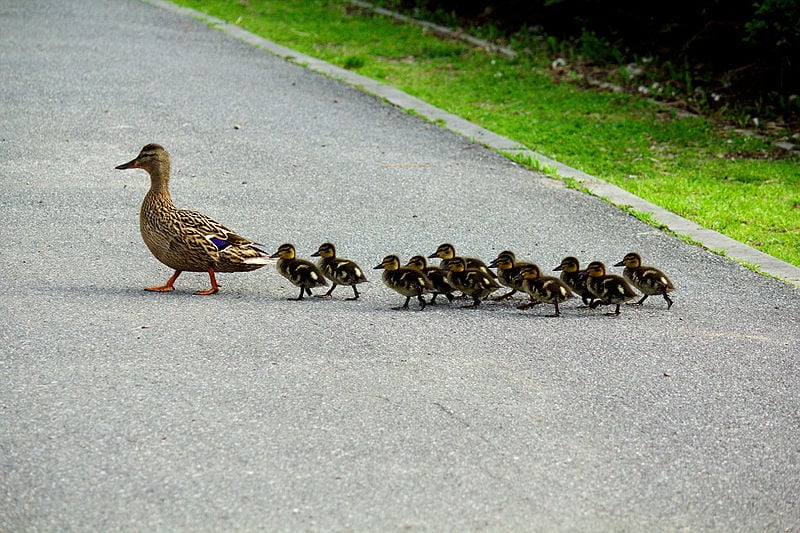Origins of Attachment:
Beginning at birth, children develop a deep attachment with their caregiver, whoever that may be. Attachment is not always two sided, where one living being can attach to another with it being reciprocated, such as a duck. As soon as a duck is born, it develops a deep attachment to the first thing it sees practically. The first thing it sees is usually it’s mother, which explains why it is common to see ducklings following their mother so closely.
Humans take longer than an instant to attach so deeply to something. Once they are cared for and raised by their parents for a period of time, they begin to develop this trust and attachment to the caregiver. In the past, societal standards would lead to a stronger attachment with the mother and child, rather than the father. This is because men were expected to leave the house and work, while women were more in charge of taking care of the children and household chores. Once this bond to the caregiver(s) is strong, the child has a hard time being separated from them, and they become distressed. Though the children attach to their caregiver, not all styles of parenting are healthy for the children. Parenting styles are categorized into three main categories, which are known as authoritarian, authoritative, and permissive. The ideal parenting style is authoritative, where the caregiver sets rules and has expectations for their children, but they will listen to their child and can understand and make exceptions when appropriate. Authoritarian is stricter, where the caregiver will set certain rules that are expected to be met no matter the circumstance. This style of parenting is known to cause negative effects on the child, such as severe anxiety as they get older, as well as issues with self-confidence. On the other hand, permissive parenting is too under controlling with little rules that are usually easy to get around, which also leads to poor effects on a child. These effects can range from things like academically unmotivated, and a lack of personal responsibility.

